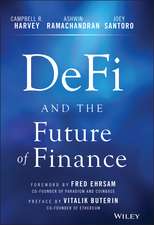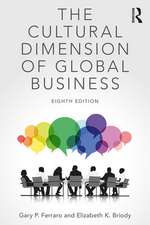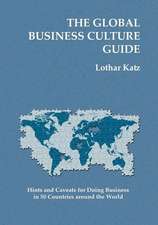Financial Mathematics For Actuarial Science: The Theory of Interest
Autor Richard James Wildersen Limba Engleză Paperback – 30 sep 2021
Key Features
- Helps prepare students for the SOA Financial Mathematics Exam
- Provides mathematical understanding of interest and the time value of money needed to succeed in the actuarial examination covering interest theory
- Contains many worked examples, exercises and solutions for practice
- Provides training in the use of calculators for solving problems
- A complete solutions manual is available to faculty adopters online
| Toate formatele și edițiile | Preț | Express |
|---|---|---|
| Paperback (1) | 393.52 lei 6-8 săpt. | |
| CRC Press – 30 sep 2021 | 393.52 lei 6-8 săpt. | |
| Hardback (1) | 731.40 lei 3-5 săpt. | +28.56 lei 7-13 zile |
| CRC Press – 4 feb 2020 | 731.40 lei 3-5 săpt. | +28.56 lei 7-13 zile |
Preț: 393.52 lei
Nou
Puncte Express: 590
Preț estimativ în valută:
75.30€ • 80.52$ • 62.78£
75.30€ • 80.52$ • 62.78£
Carte tipărită la comandă
Livrare economică 17 aprilie-01 mai
Preluare comenzi: 021 569.72.76
Specificații
ISBN-13: 9781032175072
ISBN-10: 1032175079
Pagini: 396
Ilustrații: 36 Illustrations, black and white
Dimensiuni: 156 x 234 x 22 mm
Greutate: 0.54 kg
Ediția:1
Editura: CRC Press
Colecția CRC Press
Locul publicării:Boca Raton, United States
ISBN-10: 1032175079
Pagini: 396
Ilustrații: 36 Illustrations, black and white
Dimensiuni: 156 x 234 x 22 mm
Greutate: 0.54 kg
Ediția:1
Editura: CRC Press
Colecția CRC Press
Locul publicării:Boca Raton, United States
Cuprins
1. Overview and Mathematical Prerequisites. 2. Measuring Interest. 3. Solving Problems in Interest. 4. Annuities. 5. Amortization Schedules and Sinking Funds. 6. Yield Rates. 7. Bonds. 8. Exact Asset Matching and Swaps. 9. Interest Rate Sensitivity. 10. Determinants of Interest Rates.
Notă biografică
Richard James Wilders is Marie and Bernice Gantzert Professor in the Liberal Arts and Sciences and Professor of Mathematics at North Central College in Naperville, IL. He earned his B.S. from Carnegie Mellon University and his M.S. and Ph. D. from The Ohio State University.
He has taught the Financial Mathematics course at North Central since creating it some 20 years ago and wrote this book based on his experiences with North Central students. Draft copies of the present work have been used by 100 or so students over the past few years many of whom have made useful suggestions. In addition to Financial Mathematics, Wilders teaches calculus, statistics, finite mathematics, abstract algebra, and the history of mathematics and of science. He is a member of the Mathematical Association of America (MAA) and of the National Council of Teachers of Mathematics (NCTM).
He and his wife enjoy the Chicago theater and dance scene and are avid Ohio State football fans.
He has taught the Financial Mathematics course at North Central since creating it some 20 years ago and wrote this book based on his experiences with North Central students. Draft copies of the present work have been used by 100 or so students over the past few years many of whom have made useful suggestions. In addition to Financial Mathematics, Wilders teaches calculus, statistics, finite mathematics, abstract algebra, and the history of mathematics and of science. He is a member of the Mathematical Association of America (MAA) and of the National Council of Teachers of Mathematics (NCTM).
He and his wife enjoy the Chicago theater and dance scene and are avid Ohio State football fans.
Recenzii
"Financial Mathematics for Actuarial Science: The Theory of Interest by Dr. Richard Wilders creates a solid foundation for students to succeed in Financial Mathematics by providing an in-depth understanding of the many moving parts of Interest Theory. Dr. Wilders breaks down complicated theory into simpler, more manageable components that are intuitive to students, so they can approach problems in a methodical way and understand the 'why' in addition to the 'how.' "
—Andrew Hayes
"Easy to follow study manual from the incredible professor who helped me nail down Interest Theory! No actuarial exam is easy, but having the right tools can help and I’d call this the right tool."
—Veronica Ramming, North Central College
—Andrew Hayes
"Easy to follow study manual from the incredible professor who helped me nail down Interest Theory! No actuarial exam is easy, but having the right tools can help and I’d call this the right tool."
—Veronica Ramming, North Central College
Descriere
Financial Mathematics for Actuarial Science: The Theory of Interest is concerned with the measurement of interest and the various ways interest affects time value of money (TVM).
















